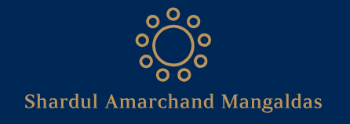The Payment of Gratuity Act 1972 is a form of social security legislation which prescribes a scheme for the payment of gratuity. 'Gratuity' is essentially a retirement benefit payable by an employer at the end of employment. Employees who have worked with an employer for at least five consecutive years are eligible to claim this benefit. The quantum of gratuity is based on his or her last drawn basic pay and is calculated at the rate of 15 days' basic pay for every completed year of service or part thereof in excess of six months. However, for the private sector, this liability is capped at a ceiling of Rs1 million ($15,384). On the other hand, central government employees can receive gratuity of up to Rs2 million ($30,769) as their rules are more beneficial. There is no tax liability on the quantum of gratuity received in accordance with the Gratuity Act.
There is a proposal to increase the Rs1 million cap to Rs2 million for the private sector in order to align it with the central government. The Cabinet has approved the introduction of the Payment of Gratuity (Amendment) Bill 2017 in Parliament.
The proposed amendment is a step forward in ensuring better benefits to eligible employees. The attraction of an increased retirement payment will also support the continuity of employment and retention of talent in high turnover industries like the IT industry. That said, the proposed amendment increases employers' financial burden. A revised actuarial valuation of the gratuity liability, or an increased contribution towards insurance policies, will be the immediate next steps for employers in addition to revising the cost to company of the employees. Ascertaining the increased gratuity liability in advance would be helpful from a financial planning perspective. However, the enhancement in the ceiling limit will not impact those organisations which already pay gratuity above the ceiling limit. Nonetheless, these organisations would need to align their policies with the proposed amendment once it becomes effective.
This article was first published by the International Law Office, a premium online legal update service for major companies and law firms worldwide. Register for a free subscription.
For further information on this topic please contact Pooja Ramchandani or Vaibhav Bhardwaj at Shardul Amarchand Mangaldas & Co by telephone (+91 11 4159 0700) or email ([email protected] or [email protected]). The Shardul Amarchand Mangaldas & Co website can be accessed at www.amsshardul.com.





